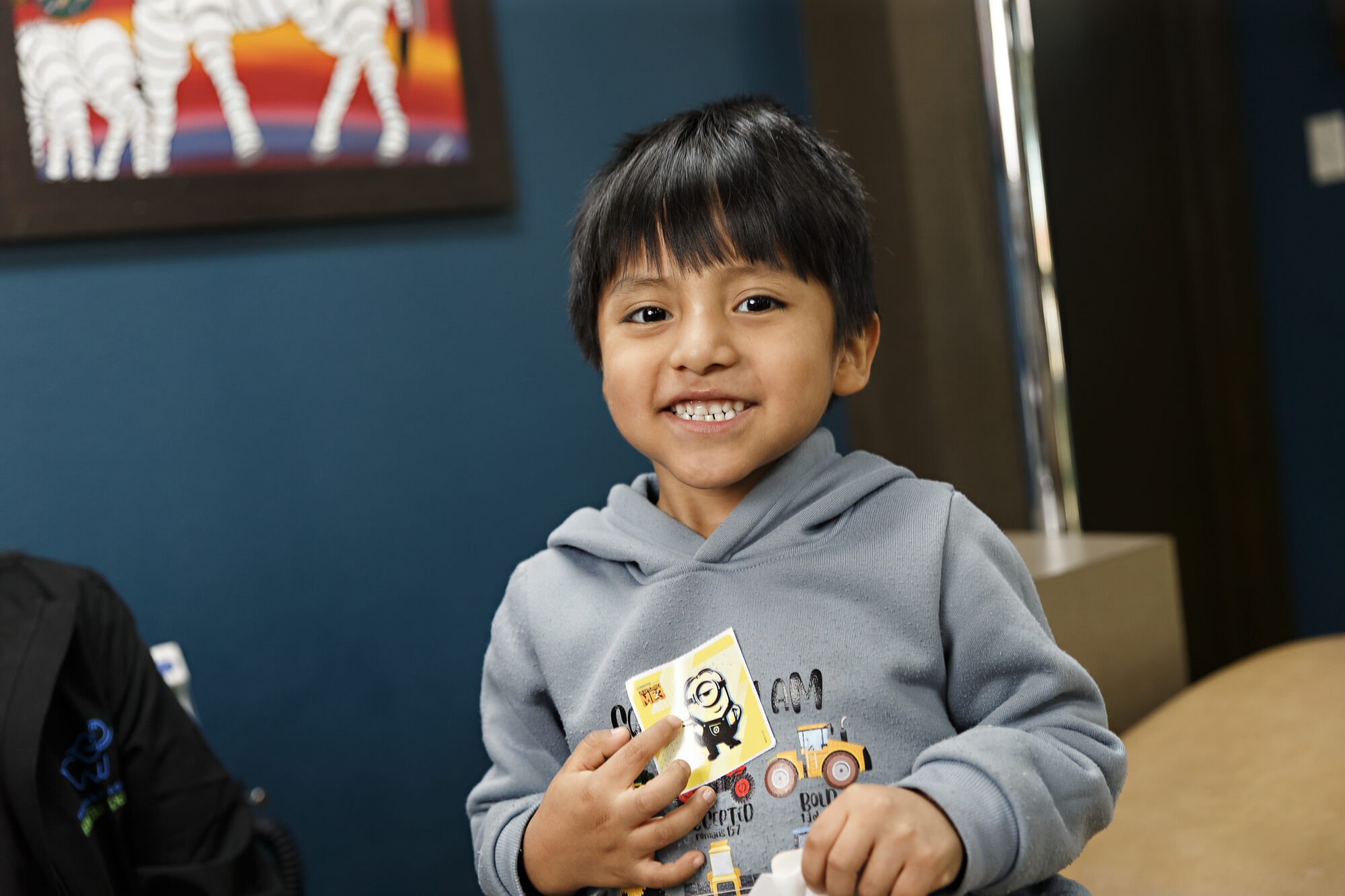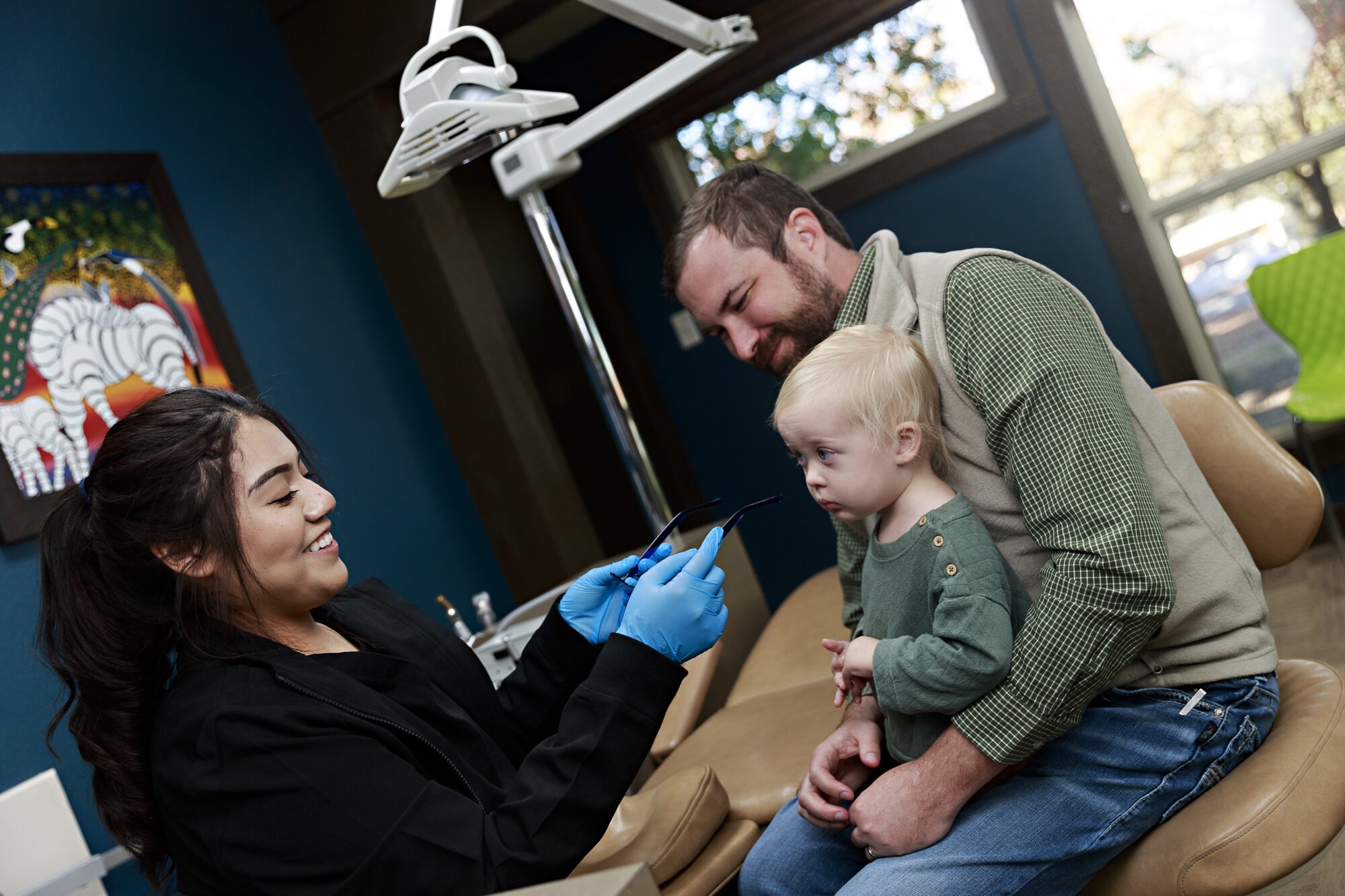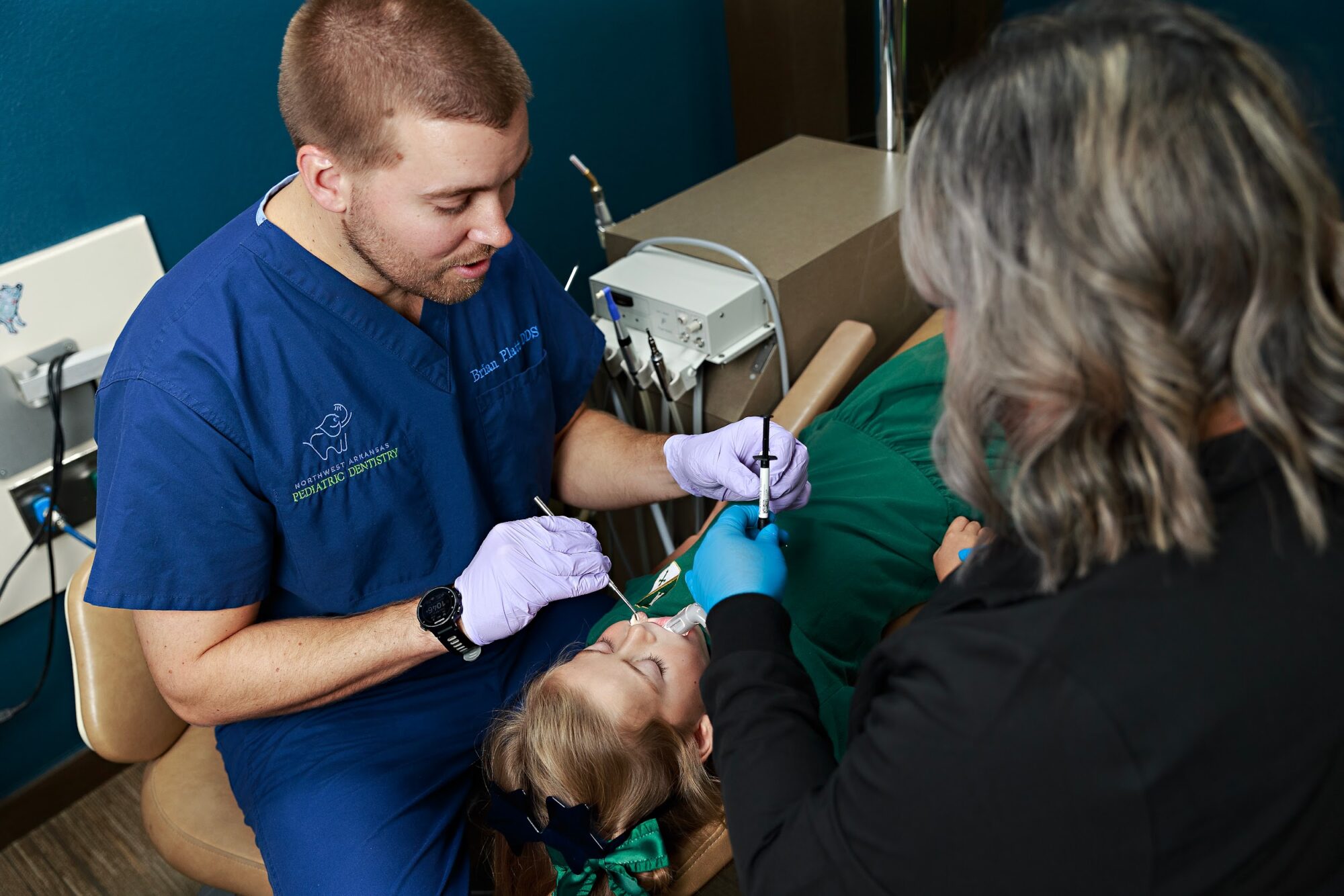As a parent, one of the most important things you can do for your child is to ensure they develop healthy dental habits. Taking care of your child’s teeth from an early age can set them up for a lifetime of good oral health. Today, we’ll explore the fundamental steps to keep your child’s teeth clean, strong, and free from cavities.
Modeling
Every good behavior and good habit for our kids starts with modeling that same behavior and same habit as their parents. If we desire our kids to start picking up their toys, looking both ways before crossing the street, and buckling up in the car, we need to model those same behaviors and lead by example. No surprise, it’s not any different for oral hygiene habits. If we want them to become consistent in brushing their teeth, we as parents need to be consistent at brushing our teeth. If we want them to eat healthy foods and drink lots of water, we also need to eat healthy foods and drink lots of water. John Maxwell said, “More is caught than taught… you can teach your kids what you know, but you reproduce what you are.” He wasn’t talking about oral hygiene, but the same principle applies. After we check the mirror and perform a quick self-assessment, let’s continue on how to take care of our children’s teeth.
Create an oral hygiene routine early
The easiest way to form good habits is to start them from the very beginning. Start brushing your kid’s teeth as soon as the first baby tooth appears in the mouth. You can even begin rubbing your child’s gums with a finger brush or wash cloth before the teeth erupt to get them comfortable with oral care. [This isn’t necessary to prevent tooth decay, but may increase the success of forming that brushing habit early]. When your baby only has 2 teeth, it doesn’t take very long to achieve a clean mouth. But building a good brushing habit from Day 1 will start your baby off in the right direction for creating a smile that lasts a lifetime.
Brushing
Here are three quick guidelines we follow when creating a brushing routine for our kids.
1. Brush twice a day.
Create a habit of brushing twice a day: after breakfast and before bed. When kids are young and still taking naps, you can brush before nap time and then again before bed time. This is helpful for kids learning to repeat the same routine before going to sleep. It’s also helpful as parents for us to remember that brushing our kids’ teeth is something we are supposed to be doing. Frequently brushing at a young age can be a struggle. I always say to parents, struggle harder at night time to make sure we go to sleep with a clean mouth. This goes a long way in the prevention of any early signs of tooth decay.
2. Use a fluoride toothpaste.
Using a fluoride toothpaste helps strengthen enamel and works to prevent demineralization, an early stage of cavity formation. The specific type or brand of toothpaste isn’t that important as most toothpastes available at your local store have an equivalent amount of fluoride. What is important is using the correct amount of toothpaste for your child. Kids under 3 years old only need a smear or “rice” sized amount of toothpaste. Kids 3 and older can use a “pea” sized amount. There is no need to cover the entire toothbrush with toothpaste. Extra toothpaste will not benefit your teeth any more and will more than likely create another unnecessary mess pushing your daily total of mess cleanups one notch closer to 100. [Toddlers are fun but also pretty exhausting!]
3. Parents should brush their kids’ teeth until age 11
As kids grow and seek to show their independence, this can become difficult. But all the research shows that kids lack the hand skills to adequately brush all their teeth until age 11. As they grow, give them a turn brushing their teeth, but make sure they know that mom or dad is going to get a turn as well.
Pro tip: Have your kids lay down to brush their teeth! It keeps them more still, allows you to see better, and maintain control of the situation to make sure you get the job done. Future post to come demonstrating how this can be done.
Diet
Modeling also plays a very important role in developing a healthy diet for our kids. Can we expect our kids to only drink water if we constantly are sipping on our favorite soda, sweet tea, gatorade, Starbucks, or 7Brew? Can we expect them to be happy about eating raw veggies, nuts, cheese, and yogurt when we are snacking on chips, crackers, goldfish, fruit snacks, and sweets? Remember, “More is caught than taught.” Create some parameters for yourself and then start by building a few simple habits for your kids.
1. Give your child milk at mealtimes and only water the rest of the day. Avoid juice, soda, sweet tea, chocolate milk, and Gatorade. One principle I like to remember, “if your child has never had something, they will never ask for it!”. This works for a while when kids are young and decreases the number of times you have to say “No” in a day.
2. Limit the frequency that your child eats. Breakfast, lunch, and dinner, and then maybe 1 other time in between those at most. If your child is routinely hungry, plan to have more quantity at each of those settings instead of increasing the frequency. [This is a general guideline. We do recognize certain health conditions may require a different diet plan. Please discuss this at your appointment so we can provide additional instructions for maintaining healthy teeth.]
3. When your child does have a snack, keep the snack time short and choose healthy options like veggies, nuts, cheese, and yogurt. Avoid some of the biggest (and lesser known) cavity causers today like crackers, goldfish, fruit snacks, and gummies.
Pro tip: This one is simple. If you don’t have it [insert any food or drink] at home, they can’t eat or drink it.
Flossing
If you’ve made it this far in developing oral hygiene habits, then you’re doing a great job! A quick Google search will show you varying studies suggesting only 15-40% of adults floss daily. Introducing your kids to flossing once their teeth start touching is a great idea. As kids grow, adult teeth start to erupt and teeth get closer together, making flossing more important. But it doesn’t become more important than brushing and diet so focus on those first! [That’s why it’s last on the list 😀]
Developing the right oral hygiene habits from an early age can make all the difference in setting kids up for success with taking care of their teeth for a lifetime. Start by assessing where you and your kids are today with oral hygiene habits. Choose 1 small habit to start or improve. Get 1% better each day and stay committed to maintaining a fun and positive attitude regarding oral health with your kids.
Shine Your Light,





